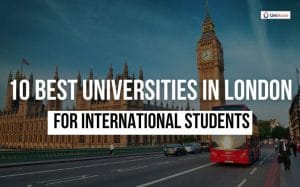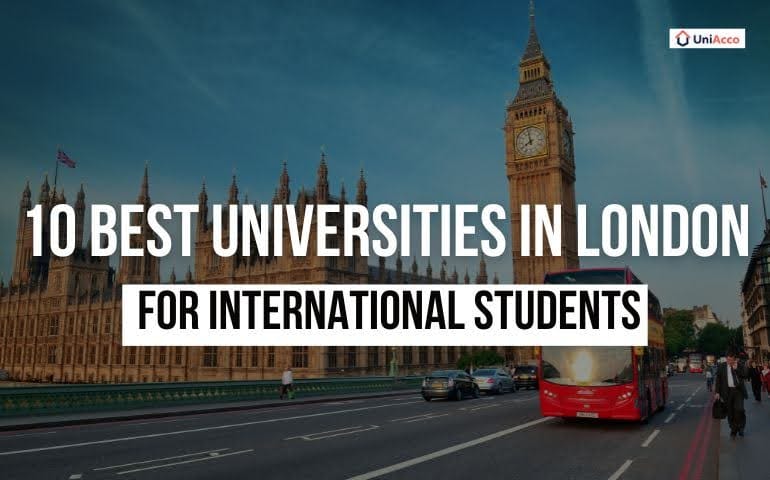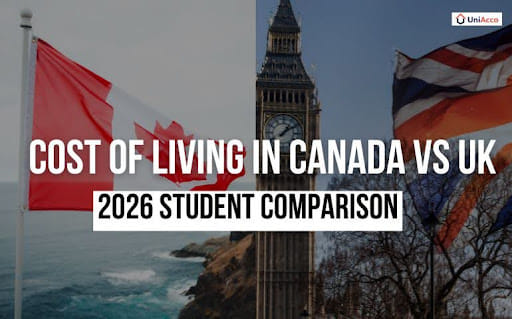You’ve finally made it to the interview stage. After weeks of filling out forms, chasing deadlines, and crafting that perfect application, you’re now one step away from securing a scholarship to study abroad. But before that offer letter lands in your inbox, you need to face a panel and answer their questions with clarity and confidence.
This is where most students start to feel unsure. What kind of scholarship interview questions should you expect? How do you frame your answers without sounding rehearsed? And most importantly, how do you prove you’re worth the investment?
This blog breaks down the most common and the most overlooked scholarship interview questions. You’ll learn how to prepare for them, what interviewers are really looking for, and how to walk in with answers that actually land.
Most Commonly Asked Scholarship Interview Questions
- Tell us about yourself
This one’s always the opener to make you comfortable and see what you choose to say when there’s no script. The panel has your CV. But they want you, in your own words. Your story, your values and what truly matters to you. It’s also a test of how well you handle a broad, open-ended question, a situation you’ll face often if you study or work abroad.
How to answer?
- Start with a one-line intro: your name, course, and academic background.
- Mention what sparked your interest in your chosen field or career path.
- Highlight 1–2 strengths or experiences that reflect your personality or ambition.
- Keep it relevant to the scholarship. Link your past to your future goals.
- Avoid repeating your CV. Focus on what makes your story unique.
- Keep it short, clear, and conversational.
Sample Answer:
I’m an Economics undergraduate from Mumbai with a deep interest in global development. Growing up in a middle-income household, I saw firsthand how access or lack of it shapes opportunity. That led me to volunteer with a rural microfinance initiative, where I realised how policy decisions play out in real lives. I’m applying for this scholarship to pursue a Master’s in Development Studies. I want to build evidence-based, inclusive policies for emerging economies, and studying abroad will give me the academic rigour and exposure I need to get there.
- Why are you interested in studying abroad?
The panel wants to understand your intent. This question helps them determine whether you’ve thought this through, not just the destination, but the outcome. They’re investing in someone who’s going to take this chance seriously and do something meaningful with it.
How to answer?
- Start with your academic or career goals.
- Talk about how international exposure ties into those goals.
- Mention specific aspects of the programme or country that attracted you.
- Show that you’ve thought beyond the classroom.
- Avoid clichés like “explore new cultures” or “broaden my horizons” unless you add depth.
- End with how this move sets you up for long-term success.
Sample Answer:
I want to pursue Artificial Intelligence in healthcare, and studying abroad gives me access to cutting-edge research that isn’t yet widely available in India. The programme I’m applying to has a strong focus on clinical applications and offers mentorship from global experts. Beyond academics, it gives me the chance to build a network in a country leading in health tech innovation. I’m not just going to study, I’m going to prepare myself to return and build AI-led solutions for Indian hospitals. That’s the end goal.
- What are your expectations from your chosen program?
This question isn’t about what the university will give you. It’s about what you’re going to do with it. The panel wants to know if you’ve thought past admissions. Do you know what this course offers? Do you know how to use it? They’re trying to see if your goals match the programme’s strengths and if the scholarship will actually make a difference in your journey.
How to answer?
- Begin with what drew you to this specific course. Keep it fact-based.
- Talk about what you expect to gain: knowledge, exposure, mentorship, or specific skills.
- Connect that to your bigger academic or professional goal.
- Share how the scholarship makes that path more realistic or achievable.
- You can briefly touch on your inspiration or a personal story, but keep it crisp.
Sample Answer:
I chose this programme because of its strong focus on renewable energy engineering, backed by real-world research and lab access. I expect to build technical expertise in clean energy systems, learn from industry professionals, and work on live projects. The goal is to return to India and contribute to large-scale solar solutions in underserved regions. This scholarship makes it possible for me to study at a global standard and bring that experience home, where it’s needed most.
- Why did you choose this university?
This scholarship interview question helps the panel understand how well-informed your decision is. They want to know if you are choosing the university based on its academic strengths. Does it align with your career plans, or is it just because your friends are applying there too? Basically, they’re testing whether you’ve chosen with purpose and not just because it’s ranked high.
How to answer?
- Start by naming specific strengths of the university, which can include faculty, specialisations, facilities, etc.
- Show how those directly connect to your academic or career goals.
- Mention if the university has a unique offering (research centre, internship tie-ups, alumni network).
- Keep it personal.
Sample Answer:
I chose this university because of its reputation in applied data science and the access it provides to cutting-edge labs and industry collaborations. I’ve followed the work of Professor James Bell in predictive analytics and am eager to learn under his guidance. The structure of the course, with its mix of theory and practical modules, matches the kind of training I need to build a career in data-driven policymaking. No other university offered this blend of academic depth and real-world exposure.
- Have you ever travelled abroad before?
This question is more about mindset.
If you have travelled, they want to know how you handled it.
If you haven’t, they want to see if you’re ready for the leap.
The idea is to understand how comfortable (or uncomfortable) you are with unfamiliar environments, and how you respond to them.
How to answer?
- Be honest. Don’t try to impress with fake trips.
- If you’ve travelled, share what it taught you about adjusting or communicating across cultures.
- If you haven’t, show your willingness to step out, learn fast, and embrace change.
- Always link it back to how you’ll make the most of the opportunity abroad.
Sample Answer:
- If you have travelled: Yes, I travelled to Singapore for a student exchange in college. It was short, but it taught me how different even small things like classroom behaviour or food etiquette can be. I had to adapt quickly, and I did. That experience gave me the confidence to apply for full-time study abroad.
- If you haven’t travelled: I haven’t had the chance yet, but I’ve prepared myself for the shift. I’ve lived away from home during college, handled things independently, and made friends from different states and cultures. I’ve also taken online classes from international professors, which gave me a glimpse of what to expect. I know there’ll be differences, but I’m excited to embrace them head-on.
- How will you overcome the challenges of living and studying in a new culture?
This question is a test of your self-awareness and maturity. The panel wants to know if you are prepared for life beyond academics, if you can adjust to a different pace, accent, food, and social norms and also if you can handle homesickness well.
How to answer?
- Acknowledge that adjusting won’t be easy. Don’t pretend otherwise.
- Share how you’ve handled change or discomfort in the past.
- Mention steps you’ll take to stay open-minded, learn, and blend in.
- Show a willingness to learn from people and experiences, not just books.
- Avoid clichés like “I love meeting new people.” Give real examples.
Sample Answer:
I know moving abroad will come with challenges, from new routines to cultural differences. But I see that as part of the learning curve. During my internship in Delhi, I had to work with colleagues from five different states, each with their own style and language. It taught me how to communicate across differences and ask questions without hesitation. I plan to do the same abroad, listen more, judge less, and slowly adapt. I’ll also actively join student clubs to meet people from both local and international backgrounds. And on tough days, I’ll remind myself why I started this journey in the first place.
- Why did you choose to apply for this scholarship?
This question gets to the heart of your motivation: how your goals align with the scholarship’s purpose. It’s about showing you’ve chosen this opportunity with intention. Do you grasp the true value of this scholarship? Will you fully embrace what it offers? Your answer proves whether you’re focused, committed, and ready to make a meaningful impact.
How to answer?
- Be clear about why this particular scholarship matters to you.
- Show how it fits your career or academic goals.
- Mention any unique features or values of the scholarship that attract you.
- Highlight how the scholarship eases your path to study abroad.
- Avoid vague or generic reasons like “It helps me pay fees.” Dig deeper.
Sample Answer:
I applied for this scholarship because it supports students who aim to contribute to sustainable development, which aligns with my career goal in environmental science. The mentorship program attached to it is also a huge draw; I’m eager to learn from industry experts. Receiving this scholarship will not only ease my financial burden but also connect me to a network that can help me grow professionally and personally while I study abroad.
- Why do you deserve this scholarship?
This question challenges you to demonstrate your unique value. The committee wants to know what sets you apart from countless other applicants. They seek to understand the qualities and accomplishments that make you a deserving candidate and how you will use the scholarship to create a meaningful impact. Showing dedication and responsibility is key to justifying their trust. Your response should convince them that selecting you is a wise choice.
How to answer?
- Focus on your achievements, skills, and qualities that align with the scholarship’s goals.
- Show how you’ve overcome challenges or demonstrated commitment.
- Link your future plans to the scholarship’s purpose.
- Stay humble but confident and avoid exaggeration.
- Use specific examples to back up your claims.
Sample Answer:
I deserve this scholarship because of my consistent academic record, passion for social impact, and commitment to using my education to give back to my community. Despite financial challenges, I have maintained top grades and volunteered extensively. This scholarship will help me gain the skills I need to lead projects that improve access to education in rural areas. I’m dedicated to making a difference, and this support will make that possible.
- How will you finance your study abroad program beyond this scholarship?
This question seeks to assess your financial planning and dedication. The panel wants assurance that you have a practical strategy to manage expenses beyond the scholarship. Demonstrating financial responsibility and resourcefulness shows you can handle costs without jeopardising your studies. Your response should reflect your seriousness about completing your education successfully.
How to answer?
- Be honest about your financial situation.
- Mention other sources of funding, if any (family support, savings, part-time work).
- Show you’ve researched costs and have a plan to manage expenses.
- If applicable, express willingness to seek part-time jobs or internships.
- Avoid sounding unsure or unprepared.
Sample Answer:
Beyond this scholarship, I have saved money through part-time jobs over the past two years. My family also supports me financially to cover living expenses. I’ve researched the cost of living and tuition fees thoroughly and plan to apply for on-campus work opportunities. This combined approach ensures I can manage my expenses responsibly and focus fully on my studies.
- What are your biggest strengths/accomplishments?
This question helps the panel understand your unique qualities and key achievements. They want to see what you bring to the table that sets you apart from others. Which skills or traits make you a strong student and candidate? What successes show your dedication and ability to excel? How have your accomplishments shaped your journey and goals? Your answer builds trust and shows you’re ready for the challenge ahead.
How to answer?
- Choose 2-3 strengths that relate to your study field or character.
- Pick accomplishments that show your hard work and impact.
- Use clear examples—don’t just say “I’m hardworking,” prove it.
- Keep it relevant, concise, and confident.
- Tie your strengths and achievements to how they’ll help you succeed abroad.
Sample Answer:
One of my biggest strengths is perseverance. I’ve maintained top grades despite balancing part-time work and volunteering. I also have strong communication skills, which helped me lead my college debate team to national level competitions. These experiences taught me discipline and teamwork, qualities I will use to excel in my studies abroad and contribute to the campus community.
- Describe your personality in three words.
This question helps the panel get a quick snapshot of who you are beyond your grades and achievements. They want to understand your character and assess if your traits match the scholarship’s values. Your answer shows self-awareness and honesty.
How to answer?
- Pick three traits that genuinely reflect you.
- Choose qualities relevant to study and life abroad (e.g., adaptable, curious, determined).
- Briefly explain why you chose each word.
- Keep it authentic and don’t just say what you think they want to hear.
- Show confidence without sounding boastful.
Sample Answer:
I’d say I’m curious, determined, and open-minded. Curiosity drives me to explore new ideas and cultures. Determination keeps me focused on my goals, even when challenges arise. And being open-minded helps me embrace different perspectives, which is vital for studying abroad.
- Do you participate in extra-curricular activities? Which activities do you like?
Interviewers want to see if you’re well-rounded. They’re curious if you stay engaged beyond academics, how well you manage your time, and whether you bring energy and leadership to your community. These qualities prove you’ll thrive abroad not just inside the classroom but in every part of your life. Showing this balance can truly set you apart.
How to answer?
- Mention activities you’re genuinely involved in.
- Highlight any leadership or teamwork roles.
- Briefly share what you’ve learned or gained from these activities.
- Connect your involvement to your future goals or studies abroad.
- Keep it concise and positive.
Sample Answer:
Yes, I actively participate in debate club and community volunteering. Debate sharpened my critical thinking and public speaking skills, while volunteering taught me empathy and organisation. These activities balance my academic life and prepare me to engage with diverse groups during my studies abroad.
- What are your biggest accomplishments?
The panel wants clear proof that you’re someone who delivers results. They’re interested in what you’ve achieved that sets you apart and how you’ve turned challenges into wins. Can you handle responsibility and truly make an impact? Your response reveals your ability to set goals and follow through, showing you’re ready to make a difference.
How to answer?
- Pick 2-3 accomplishments that matter most.
- Choose ones relevant to your academic or personal growth.
- Briefly explain the challenge and how you succeeded.
- Show how these achievements prepared you for studying abroad.
- Keep your tone humble but confident.
Sample Answer:
One of my biggest accomplishments was leading a school project that improved local recycling efforts. It taught me leadership and teamwork. I also won first prize in a national science competition, proving my dedication and problem-solving skills. These experiences prepared me to face challenges confidently during my studies abroad.
- Where do you see yourself in 5 years?
The panel wants to see if you’re truly goal-oriented. They want to know if you’re serious about your career path and have a clear vision of how this scholarship fits into your future. Can you make the most of this opportunity abroad? Your answer reveals your motivation and long-term commitment, proving you’re ready to seize what lies ahead.
How to answer?
- Be specific but realistic about your goals.
- Link your vision to the course and scholarship.
- Show how studying abroad is a step toward your plan.
- Keep it focused on career, skills, or personal growth.
- Avoid vague or generic answers.
Sample Answer:
In five years, I see myself working in the renewable energy sector, using the skills I’ll gain from this program. I aim to contribute to sustainable projects in my home country, helping reduce environmental impact. This scholarship will give me the education and exposure I need to reach that goal.
- Is there anything you’d like to add?
The panel looks for candidates who are thoughtful and ready to finish strong. They want to see if you have important points to highlight that haven’t come up yet, and if you can confidently reinforce why you’re the right fit. Showing enthusiasm and a clear sense of purpose matters here. This moment tests your ability to sum up your strengths and make a lasting impression in just a few words.
How to answer?
- Use this chance to briefly recap your strengths.
- Mention any unique qualities or experiences you haven’t discussed.
- Express your excitement about the opportunity.
- Keep it positive, concise, and confident.
- Avoid repeating too much or sounding desperate.
Sample Answer:
I’d just like to say I’m deeply committed to making the most of this scholarship. My academic record and personal experiences show my readiness, and I’m excited to contribute to both the university and my community. Thank you for considering my application.
Tips to Prepare for Scholarship Interview Questions
- Understand The Purpose Behind Each Question.
Every scholarship interview question tests your motivation, commitment, and fit. Don’t just memorise answers. Reflect deeply on why you want this scholarship, why you chose your course, and how you plan to use this opportunity. Your answers should reveal your true purpose, not just what sounds good.
- Tell Stories, Not Statements.
Instead of bland claims like “I’m passionate about healthcare,” share a short story about a moment or experience that sparked your passion. Stories make your answers memorable and show authenticity. They help interviewers connect with you, not just your resume.
- Link Your Goals To Real-World Impact.
Scholarship panels invest in future change-makers. Show how your education abroad will help solve actual problems, whether it’s improving your community, advancing your field, or addressing global challenges. Concrete examples impress more than vague ambitions.
- Be Honest About Setbacks And Growth.
When asked about failures or weaknesses, avoid clichés or rehearsed lines. Choose a genuine challenge, explain what you learned, and how you’ve grown since. This shows resilience and maturity, which matter as much as academic achievements.
- Research The Scholarship’s Mission And Reflect It In Your Answers.
Every scholarship has unique values or goals. Understand these clearly and align your answers accordingly. If leadership is emphasised, highlight specific leadership experiences that demonstrate your skills and potential.
- Practice Flexibility, Not Memorisation.
Practice key ideas and stories aloud, but avoid scripting full answers. Interviews can throw unexpected questions or follow-ups, so being adaptable and natural beats sounding rehearsed every time.
- Prepare Detailed, Practical Plans.
When discussing your goals, be ready to explain how you’ll achieve them. For example, if you say you want to address climate change, briefly outline concrete steps you intend to take during or after your studies. This depth shows seriousness and thoughtfulness.
- Show Cultural Adaptability And Openness.
Studying abroad means thriving in new environments. Reflect on past experiences where you adapted to change or diverse groups. Interviewers want to see that you’ll handle challenges beyond academics confidently.
- Use Pauses And Stay Composed.
Don’t rush answers. Taking a brief pause to collect your thoughts makes your responses clearer and shows calmness under pressure, a key trait for scholarship candidates.
- Finish Answers By Reaffirming Your Commitment.
Close responses with a concise statement highlighting your passion and dedication when possible. It leaves a strong, positive impression with the panel.
Wrapping Up!
Now that you know what to expect, don’t let scholarship interview questions catch you off guard. Show up with honesty, focus, and confidence, and you’ll not just answer questions, you’ll make the panel believe in your potential.
But your journey doesn’t end there. Once you secure your scholarship, finding a comfortable place to live abroad becomes key. UniAcco can take that weight off your shoulders to find the best student accommodation, helping you settle in smoothly so you can concentrate on your goals without distraction.
FAQs
- Which scholarship interview questions should you expect?
When you sit for an interview for a scholarship, you can expect questions like:
- “What makes you a strong candidate for this scholarship?”
- “Where do you see your career heading?”
- “In what ways will this scholarship help you achieve your goals?”
Your responses should shine a light on your academic achievements, personal growth, and clear plans for the future.
- What’s the best way to answer scholarship interview questions?
Mastering how to answer scholarship interview questions means being concise, honest, and confident. Use real-life examples to show your skills, leadership, or dedication. Always link your answer back to why this scholarship matters in your journey. Avoid vague replies; instead, show passion and a clear vision for how the scholarship fits into your study abroad plans.
- What are the key qualities interviewers look for in a scholarship candidate?
Key qualities include leadership skills, academic excellence, community involvement, clear career goals, and the ability to articulate how the scholarship will help you achieve your objectives. Interviewers also look for confidence, sincerity, and a strong sense of purpose. Demonstrating these qualities through examples and experiences can make a strong impression.
- How should you dress for a scholarship interview?
For your scholarship interview, dress neatly and professionally. Men should consider a suit or a smart shirt and tie with trousers. Women can opt for a business suit or a neat dress and blouse combo. Avoid casual or flashy clothing.
- How to handle tough scholarship interview questions?
Tough questions in a scholarship interview can test your poise. Stay calm and take a moment to think. If you don’t know the answer, admitting it and offering to follow up later is okay. Practising common scholarship interview questions in advance helps you build confidence and respond with clarity, even under pressure.














0 Comments